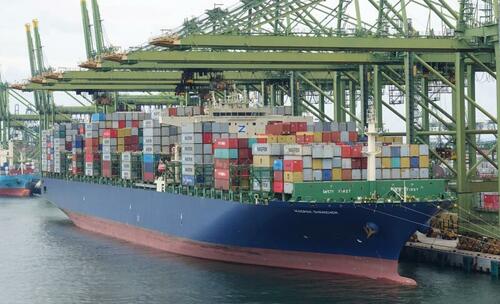Maersk Warns China’s COVID Lockdowns Disrupt Supply Chains
Even though Shenzhen, China, allowed factories and public transport to restart Friday after six days of lockdowns to mitigate the spread of COVID-19, global supply chains have already been impacted.
A.P. Møller – Maersk A/S, the world’s largest container shipping company by capacity, told clients China’s zero-tolerance approach against the virus has already produced new supply chain snarls and logistical delays.
“While manufacturing also takes place in other parts of the country, these delays will still affect output, though not drastically,” Maersk said in a memo to clients obtained by Bloomberg.
Maersk has activated contingency plans in China following the six-day lockdown in Shenzhen. The disruption shuttered factories and brought the transportation industry to a grinding halt.
What happens in China tends to have severe consequences elsewhere because it accounts for a third of the world’s total manufacturing capacity. Shenzhen is a top manufacturing hub in China and has the Port of Shenzhen, one of the largest in China. If you’re purchasing an electronic on Amazon, it’s likely it was made in China and shipped out of this region on a container ship.
Adam Compain, senior vice president of supply chain analysis research firm project44, told BBC News the number of vessels waiting at some Chinese ports has increased since the lockdowns.
“We saw a 28.5% increase in the number of vessels waiting outside of the port of Yantian which is a major export port to Europe and North America,” Compain said.
Yantian is in the same region as Shenzhen. Last year, Yantian experienced limited operations due to COVID outbreaks and contributed to significant delivery delays of products to the US.
“It’s a double-edged sword,” says Steven Lynch, managing director at British Chamber of Commerce China.
“China comes down very quickly which causes huge disruptions but then, things will go back to normal relatively quickly.
“We’ve seen these lockdowns before so companies have put in a robust supply chain management,” Lynch explained.
The good news is President Xi Jinping pledged Friday to soften the economic impact of fighting the virus. However, the latest lockdown of multiple cities and tens of millions of people, along with factories, is already having a spillover effect at the worst possible time as war and inflation have made supply chain issues worse.
Tyler Durden
Fri, 03/18/2022 – 13:23

